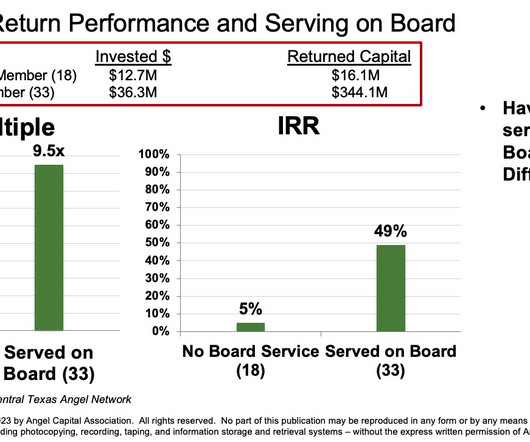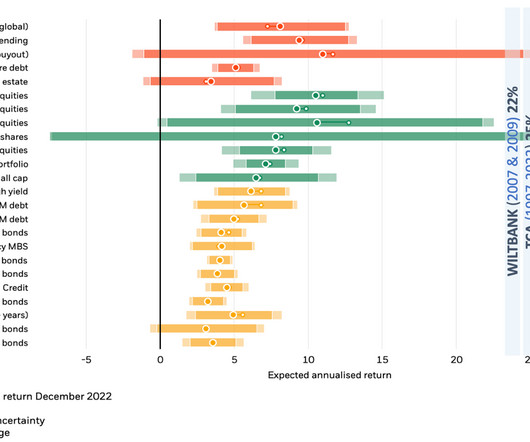New Board Members Elected at Annual Member Meeting During ACA 2020 – The Summit of Angel Investing
Angel Capital Association
JUNE 22, 2020
The Board of Directors focuses on supporting the success of angel investors through industry voice, professional development and public policy advocacy while maintaining the mission and values of the Angel Capital Association. Kevin Learned , Boise Angel Alliance, outgoing ACA Vice Chair. Thank you!














Let's personalize your content